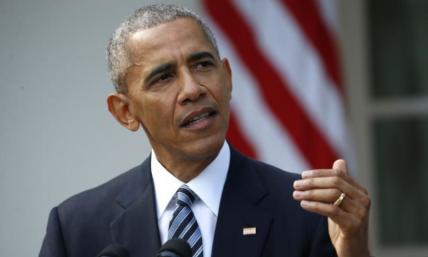What Barack Obama's Christianity Can Teach White Evangelicals
I believe evangelicals will view Barack Obama's disappointment toward them in a different light.

I believe evangelicals will view Barack Obama's disappointment toward them in a different light.

It is true that marriage is on the decline, birthrates are down, and divorce rates are high. Some are even suggesting we need to move "beyond marriage." But people's aspirations, rather than just their status, suggest family is still important in American life.

For the past year, no two living people have had their every utterance parsed for meaning as thoroughly and consistently as President Obama and Pope Francis. This search for meaning will continue Thursday, when Obama makes his second visit as president to the Vatican.

In the closing days of 2013, Representative Steve King summed up the year in religion and politics well. After a year in which Christian leaders and organizations mobilized to pressure Congress on immigration reform, King was ready to take off his gloves: "We might lose [the immigration] debate in this country because of the sympathy factor, and it's also added to by a lot of Christian groups who misread the scripture, and I'm happy to take on that debate with any one of those folks."

In a post-secular world, and a post-Christian America, it seemed we might be past the time of towering faith figures and transnational, transcendent religious leaders. Enter Pope Francis-the pontiff formerly known as Archbishop Jorge Mario Bergoglio-who is a religious rock star in a way many thought was impossible. Pope Francis has found a broad, welcoming audience in the United States, and American Catholics have found a new hope for their Church.

Dr. Martin Luther King, Jr. famously wrote in his book Stride Toward Freedom that "it is appalling that the most segregated hour in Christian America is eleven o'clock on Sunday morning."

As Christian concern for the orphan and the importance of family for all children has gained momentum, criticism of Christian practices and, more recently, their motives in serving orphans has increased.

The secret to what ails both parties, and our politics, is a return to the 2000s, the days of compassionate conservatism and culture-war compromises.